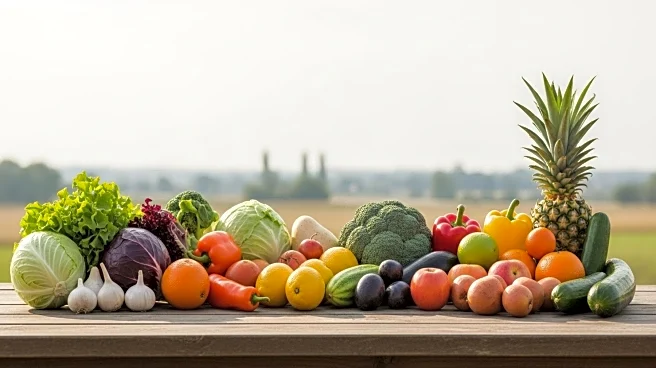What's Happening?
European agri-food organizations have expressed dissatisfaction with the European Commission's proposed safeguards in the EU-Mercosur Partnership Agreement. The trade pact, which aims to establish a large free trade zone with South America's Mercosur bloc, has been criticized for potentially increasing competition and lowering product standards. The European Commission has pledged to monitor market impacts and adjust tariff concessions if necessary. However, several EU farming and food industry groups argue that the safeguards are insufficient and fail to address disparities in production standards and sustainability issues. The agreement, originally reached in 2019, has faced delays due to opposition from EU member states like Ireland and France.
Why It's Important?
The EU-Mercosur trade deal is significant as it could create the world's largest free trade zone, impacting over 700 million people. The agreement promises to boost EU exports to Mercosur countries by 39%, potentially supporting over 440,000 jobs. However, the criticism from agri-food groups highlights concerns about the impact on European agriculture, which they feel is being used as a bargaining chip in trade negotiations. The deal's success or failure could influence future EU trade policies and relations with South America, affecting economic growth and job creation in the EU.
What's Next?
The European Parliament and the Council are urged to advance the ratification process to enable businesses and consumers to benefit from the trade agreements. The ongoing debate over the adequacy of safeguards may lead to further negotiations or adjustments to the agreement. Stakeholders, including EU member states and industry groups, will likely continue to voice their concerns, potentially influencing the final outcome of the trade pact.









